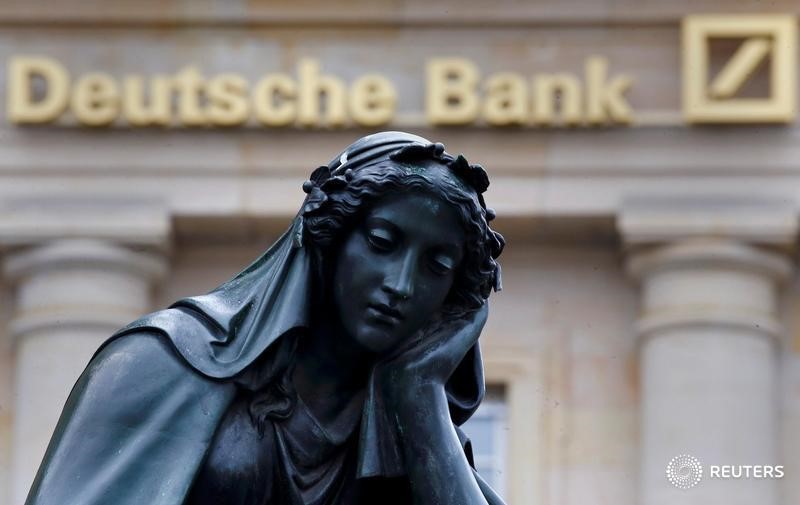(Bloomberg) -- Deutsche Bank AG (DE:DBKGn) and Credit Suisse (SIX:CSGN) Group AG are among four lenders targeted in a European Union probe into a suspected cartel for trading of U.S. dollar supra-sovereign, sovereign and agency bonds between 2009 and 2015.
The European Commission sent the banks antitrust complaints, saying they may have exchanged "commercially sensitive information and coordinated on prices" on SSA bonds via online chatrooms. Deutsche Bank said it has cooperated with the commission and doesn’t expect a fine. Credit Suisse also said it’s assisting the EU’s antitrust arm.
Credit Agricole (PA:CAGR) SA and its investment banking arm confirmed in a statement to French radio Europe1 that they received a statement of objections from the commission. The bank also said it will review the EU complaint and reply.
While the EU’s powerful antitrust arm often lags far behind financial authorities in the U.S. and the U.K. in punishing collusion between traders, its fines can sting. The EU issued their first penalties initially worth about $2 billion in Libor and Euribor cases as part of a multi-bank settlement in 2016. The commission is also wrapping up a probe into currency-market manipulation.
FCA Probe
Traders working at banks including Bank of America Corp (NYSE:BAC)., Credit Suisse and Nomura Holdings were investigated by the U.K.’s Financial Conduct Authority over possible agency-bond manipulation, people said last year. That probe was closed without charges.
Nomura said Thursday it wasn’t one of the four banks that received EU statement of objections. Bank of America spokeswoman Victoria Garrod declined to comment. A spokeswoman for Credit Agricole didn’t immediately respond to requests for comment.
Deutsche Bank “proactively cooperated with the European Commission in this matter and does not expect a financial penalty,” it said in an emailed statement. It couldn’t comment further “as this is an ongoing investigation.”
Credit Suisse also said it’s cooperating with the EU probe into "past conduct." The bank doesn’t believe its employees engaged in anti-competitive conduct and hopes to dispel the EU’s concerns, which relate only to trading by a single former employee who left the bank in early 2016.
World Bank
The cartel may have distorted competition in secondary market trading in Europe, the EU said. It started looking at agency-bond trading in 2015 following the opening of a U.S. Department of Justice criminal investigation into the market. Deutsche Bank was among five banks sued by a pension fund over claims that traders conspired to manipulate trading agency bonds issued by government entities and institutions like the World Bank, harming investors who bought and sold the securities.
The SSA market is generally defined to include international development organizations, government-sponsored entities and some sovereign debt. Depending on the securities that are included, the market could range from $9 trillion to $15 trillion, according to data compiled by Bloomberg. The bonds generally have high credit ratings because of explicit or implicit guarantees they carry.
Companies that blow the whistle on a cartel and hand over valuable evidence to help regulators often receive immunity from fines. Their immunity can be taken away if they disclose detail about the probe. Other firms can get reductions for aiding an investigation.
Getting a statement of objections from the EU is usually a precursor to potential fines. Companies can seek to argue their defense in writing or at an oral hearing but it is rare for the EU to drop a case or avoid levying fines for cartel behavior after it sends the formal complaint.
